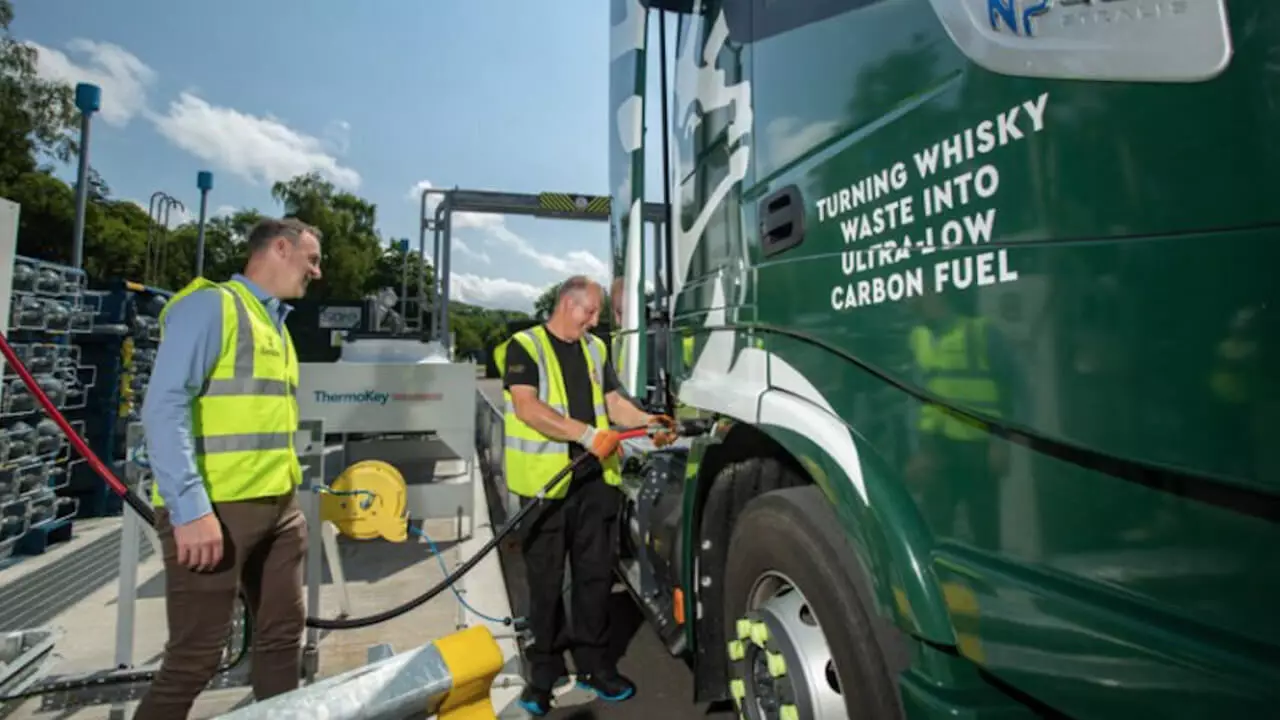After the Aston Martin DB6 Steering Wheel of Prince Charles, which uses a fuel (ethanol) made from white wine, now comes the news that the Scottish distillery Glenfiddich can produce biogas from the waste from the distillation of its whiskey.
This biogas already serves as fuel for three of the approximately 20 trucks it has in its fleet, with this measure being part of a sustainability initiative by Glenfiddich itself, which sells around 14 million bottles of whiskey a year.
To do this, the distillery used technology developed by William Grant & Sons, the distillery's own company, capable of converting the residues and waste into an ultra-low carbon gaseous fuel that produces minimal emissions of carbon dioxide and other harmful gases.

The main ingredient for the production of biogas is spent grain left over from the malting process, which was previously sold by Glenfiddich to serve as a high-protein feed for livestock.
Now, the grains go through the anaerobic digestion process, where microorganisms (bacteria) manage to decompose the organic matter, generating biogas. The distillery is also able to use the liquid waste from its processes to produce fuel. The ultimate goal is for all of your whiskey waste to be recycled in this way.
Glenfiddich has installed refueling stations at its facility, located in Dufftown, northeast Scotland, where three trucks have already been converted to use this biogas. These are IVECO Stralis, which previously ran on natural gas.

With this new biogas derived from whiskey production, Glenfiddich says that each truck is able to reduce CO2 emissions by more than 95% compared to others that run on diesel or other fossil fuels. It also reduces the emission of particulates and other greenhouse gases by up to 99%.
Stuart Watts, director of distilleries at William Grant & Sons"Each truck will be able to emit less than 250 tonnes of CO2 a year, which has the same environmental benefit as planting up to 4000 trees a year — the equivalent of displacing the emissions from 112 homes that use natural gas, a fossil fuel."
The objective is to expand the use of this fuel to the various delivery fleets of the other William Grant & Sons whiskey brands, with the possibility of scaling up the production of biogas to serve trucks belonging to other companies.
